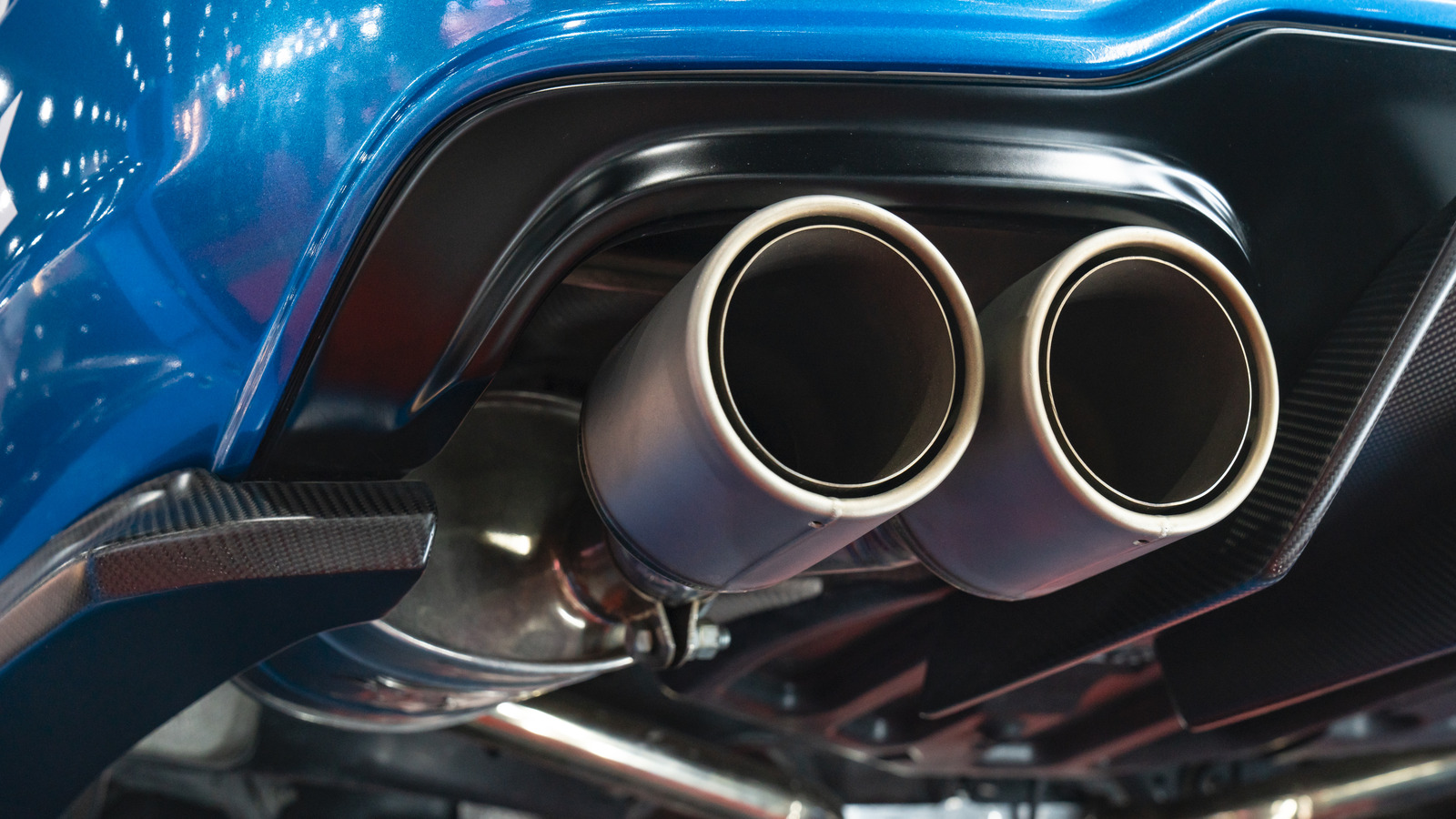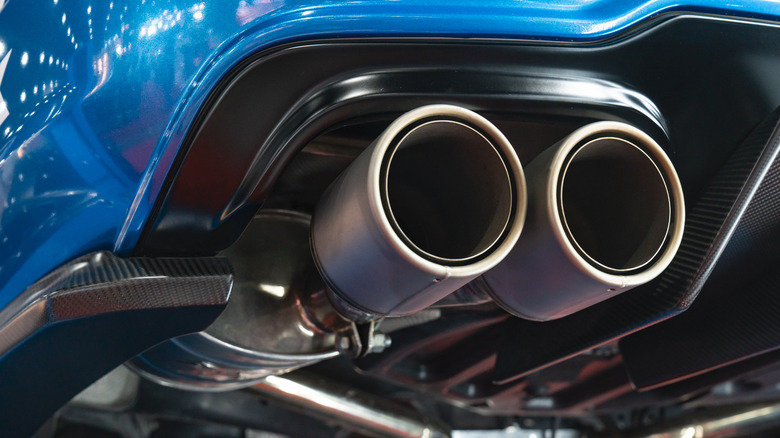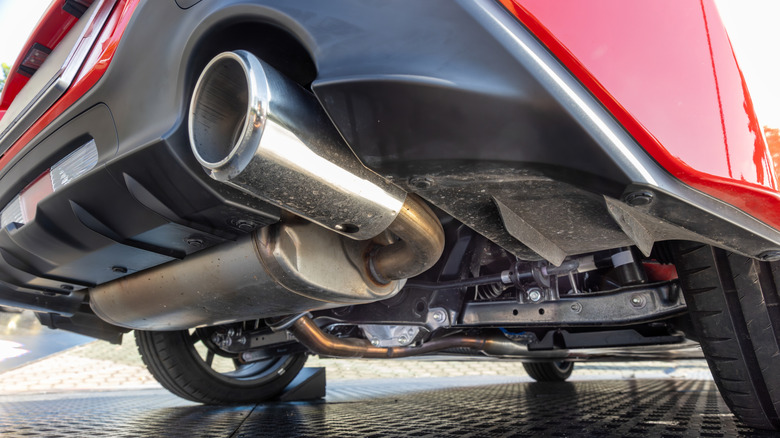We get it: You want your car to turn heads. But to do that, it’s not enough to make your car look good. You want it to sound good too. That sound all comes down to your car’s exhaust system — at least in a good old-fashioned internal combustion engine — which has a lot more pieces to it than just a tailpipe. Alongside the catalytic converter, which is there to reduce emissions, it will also have a muffler and very likely a resonator.
From the outside, the muffler and resonator may look similar, and indeed, both of them exist to make the bellowing howl of an engine exhaust less aggravating for everyone around you. However, they actually serve very different functions and have very different effects on your car’s performance. So, if you want to change how your car sounds, or if you’re looking to customize your exhaust path, you need to know what they do before picking which one to remove or replace.
What does a muffler do?
Well, the name is a pretty big clue in that a muffler muffles. Essentially, it’s designed to reduce the overall volume of the noise coming out of your engine, across the entire sound spectrum.
Basically, every car has a muffler (well, before certain enthusiastic owners decide to yank them out), and they come in several different varieties, each one dampening sound in a different way. Some will be packed with sound-absorbent materials, like fiberglass; others take a more structural approach, diverting exhaust into other chambers or perforated tubes to force the gas’s sound waves to collide with and cancel each other out.
Mufflers do serve one other important function: They actually create backpressure in the exhaust system which reaches all the way back to the engine itself. That extra pressure helps the engine run efficiently and provides a boost to overall horsepower and torque at low RPMs, while squeezing your performance at high RPMs.
What does a resonator do?
Resonators also affect your car’s sound, but they are meant more to tune that sound rather than reduce it. Where the muffler is a generalist, affecting all frequencies across the sound spectrum, the resonator is a specialist, targeting specific frequencies to cancel out. So, while the resonator doesn’t make your ride much quieter, it will make it sound much nicer, eliminating drones or irritating whines that might otherwise be there.
As with mufflers, resonators come in several types: Some are filled with sound-absorbent material, like fiberglass again, while others are essentially acoustic chambers designed to take out those annoying frequencies. Generally speaking, they’ll be smaller and sleeker than the boxy muffler.
Since resonators aren’t designed to create backpressure in the exhaust, they have virtually no impact on the car’s performance. It’s strictly a quality-of-life component, filtering out discordant notes from your engine’s song and nothing else.
Should I remove a muffler or a resonator?
The exhaust system in every car is carefully designed for the specific engine and tuning it’s attached to. So if you’ve decided your ride just has to announce its arrival with a roar, you’ll want to be careful picking which one to pull.
Since a resonator doesn’t create backpressure, it won’t affect your car’s performance if you remove it. That’s nice, but remember that a resonator’s whole purpose is to make the engine noise nicer, discarding discordant frequencies that would otherwise be there. Getting rid of it might not make your car much louder, but it will make it noisier.
If you’re looking to increase volume, removing the muffler will absolutely do that (and your neighbors will notice), but keep in mind that you’ll also be removing an important source of backpressure. That will affect your car’s horsepower and torque at the low and mid-ends while upping performance at high RPMs. With that, it’s important to ensure you know exactly what modifications your engine can handle before you start on this project.






